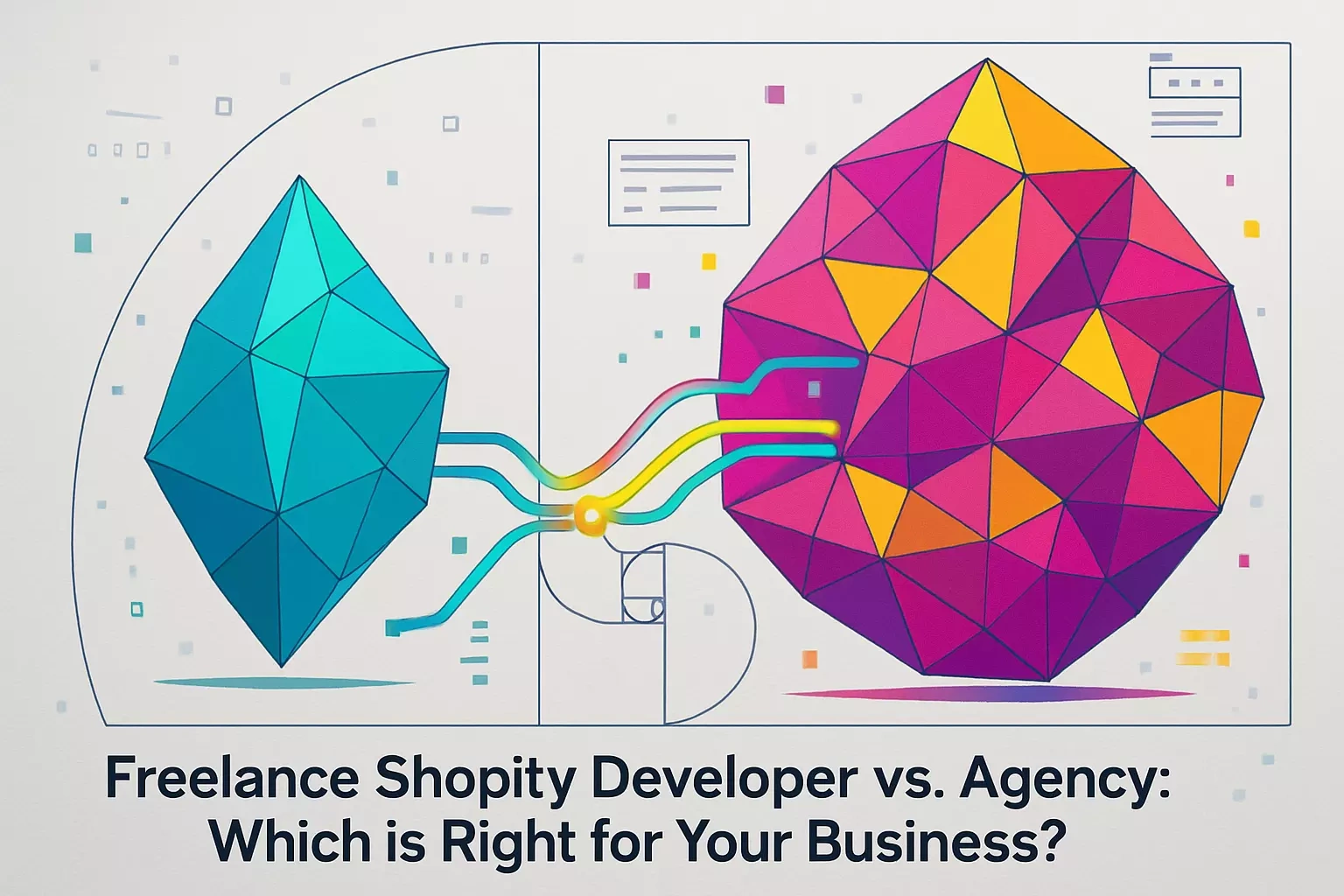Freelance Shopify Developer vs. Agency: Which is Right for Your Business?

Freelance Shopify Developer vs. Agency: Which is Right for Your Business?
Understanding Freelance Shopify Developers
Pros of Hiring a Freelancer
Cons of Hiring a Freelancer
When is a Freelancer a Good Fit?
Understanding Shopify Development Agencies
Pros of Hiring an Agency
Cons of Hiring an Agency
When is an Agency a Good Fit?
Key Factors for Your Decision
Project Scope and Complexity
Budget and Cost Considerations
Timeline and Urgency
Required Skillset and Expertise
Communication and Collaboration Style
Long-Term Support and Maintenance Needs
Making the Choice: A Summary Table
Feature-by-Feature Comparison
Conclusion: Aligning Your Choice with Business Goals
References
Freelance Shopify Developer vs. Agency: Which is Right for Your Business?
Understanding Freelance Shopify Developers
Pros of Hiring a Freelancer
Cons of Hiring a Freelancer
When is a Freelancer a Good Fit?
Understanding Shopify Development Agencies
Pros of Hiring an Agency
Cons of Hiring an Agency
When is an Agency a Good Fit?
Key Factors for Your Decision
Project Scope and Complexity
Budget and Cost Considerations
Timeline and Urgency
Required Skillset and Expertise
Communication and Collaboration Style
Long-Term Support and Maintenance Needs
Making the Choice: A Summary Table
Feature-by-Feature Comparison
Conclusion: Aligning Your Choice with Business Goals
References
Posted Jun 12, 2025
Deciding between a freelance Shopify developer and an agency? Weigh the pros, cons, costs, and project suitability to make the best hiring choice for your e-commerce needs.






